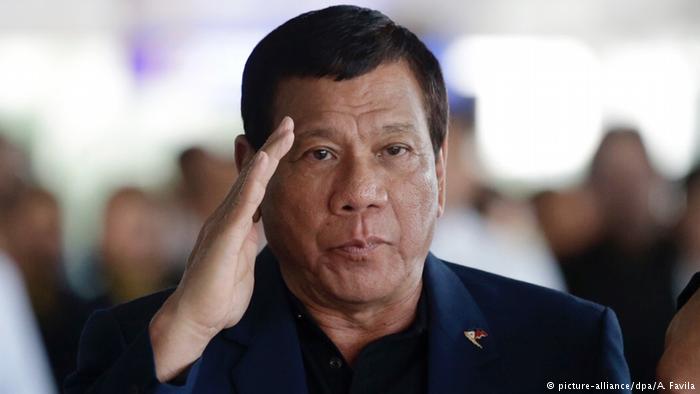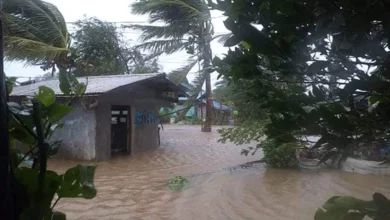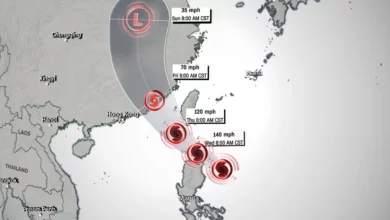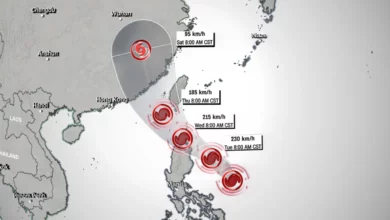
President Rodrigo Duterte is determined to carry out his campaign promise to amend the constitution and turn the Philippines into a federal state. The shift to a federal form of administration would diffuse government powers centralized in the Philippine capital of Manila, giving local governments more autonomy.
The nation’s legislature has earlier passed a resolution to convene the two chambers into a Constituent Assembly that would lay out the constitutional reform needed to transition to a federal form of government.
Proponents of federalism say that the current system of governance concentrates wealth and power in Manila, creating an imbalance that has excluded remote provinces from development and prosperity.
“Constitutional reform is very much needed. The existing constitution provides a political system that favors only those in power. That is why you have the same political dynasties, particularly in areas with small constituent sizes and are therefore easy to dominate,” Edmund Tayao, political analyst and executive director of the think tank Local Government Development Foundation, told DW.
Tayao also sees constitutional reform as a way to pass and gain acceptance for the Bangsamoro Basic Law, a peace deal that would grant greater autonomy to the predominantly Muslim provinces in the southern part of the country.
Fast track to constitutional reform
Under Philippine law, amending the 1987 constitution would require the support of both houses of Congress and the approval of the people through a national plebiscite.
But the two houses have so far been unable to agree on the timeline for the referendum. The Senate is eyeing 2019, while the House of Representatives wants voter ratification to take place as early as May this year.
Critics say that the rush to change the constitution is a smokescreen meant to consolidate Duterte’s power and keep him and his allies in office indefinitely. Tony La Viña, a legal expert and former dean of the Ateneo School of Government, worries more about how the Duterte administration plans to implement a change as drastic as a nationwide overhaul in governance.
“There is no clarity on how he is going to carry this out. Regional divisions would work out a lot of problems, it would diffuse powers but there is no vision, no clear legal framework to guide the move to federalism,” La Viña told DW. His other concern is the short cuts taken to convene a Constituent Assembly necessary to initiate federalism.
“Such a constitutional change should not be rushed. It leaves no room for debate, discussion or consultation. Any constitutional change should not take place before the next scheduled presidential elections in 2022. This would mean ensuring that the current administration does not benefit from any kind of constitutional changes it had initiated,” said La Viña.
Federalism: Good or bad?
In a statement released to DW, House Speaker Pantaleon Alvarez responded to critics’ claims that the move to federalism is being rushed and is a smokescreen to extend the powers of Duterte’s allies.
“It would be inaccurate to say that Congress is expediting this matter. Empowerment of the local governments, which is really what a shift to a federal system is all about, has been an issue constantly faced and debated upon by our country,” read the statement.
What we see right now is just the natural culmination of all those years of debate regarding this issue, Alvarez noted.
“The time has come to finally move forward, tip the scale, and further address the structural aspects of the Philippine state that has dragged and hindered the possibility of achieving greater political stability, more economic development, and expanded opportunities and welfare for our people.”
Furthermore, Alvarez explained that a shift to a parliamentary system is also being considered to create a more efficient legislative branch with better coordination with the executive department.
“A shift to a federal government will diffuse power, reduce the structures that sustain warlordism and political dynasties, expand political and economic opportunities for all, and this new environment created by the structural changes will eventually allow the tenets of a healthy democracy,” Alvarez concluded in his statement.
Duterte also recently sought to dispel speculation that he had ordered his loyalists in Congress to change the constitution in such a way that it would let him stay on in power beyond 2022, when his single term ends.
“If I overstay and wanted to become a dictator, shoot me, I am not joking,” Duterte told soldiers during an army base visit in January. “It is your job to protect the constitution and to protect the people. Remember, it is your solemn duty,” the president said, adding that security forces should not allow anybody to mess with the constitution.




